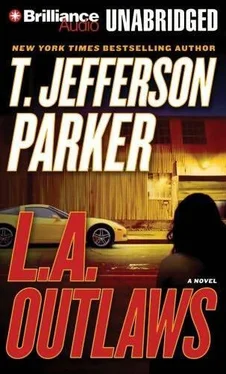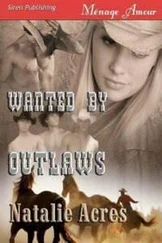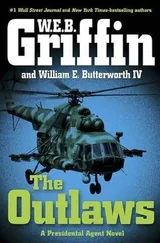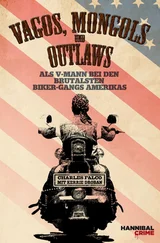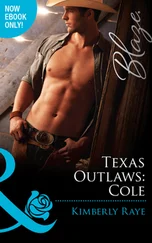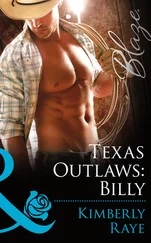She asked him to call back in ten minutes, which Hood did. Her name was Madeline Jones and she was Suzanne’s mother. She agreed to talk to him in her home at eight the next morning. She gave him her address and hoped that he would be on time.
Hood came up the driveway five minutes early. The desert air was cool and the sky was tinged orange with sunlight and dust. The highways north from L.A. had been a trance of darkness and headlights followed by an ordinary desert sunrise of inordinate beauty. He’d seen an LASD recruiting billboard: “Every Community Needs a Hero. Will It Be You?” In the new light he’d watched the yuccas passing outside the windows of his Camaro, put on some Merle and let the music and the flat, dry land take him back to his days as a boy.
Madeline’s home was a walled adobe alone on a crest of hill northwest of the city. It looked secure, but in Anbar province Hood had learned that all appearances are just appearances, and he was alive now because of that. So as he came up the drive, he thought again of Lupercio and the address book missing from Suzanne’s computer room and slid his.38 Colt from the glove box into his coat pocket. Hood had cleared this visit with Bakersfield PD through Marlon and Wyte, and Bakersfield had agreed to let the LASD investigation proceed so long as Hood behaved himself. He had a number to call if things got hot.
He parked at the adobe wall, between two large clay planters with saguaro cactus reaching up. The weathered wooden gate was open and he stood there looking at the courtyard inside. The floor was decomposed granite sand, clean and raked. The roof was a crosshatch of heavy lumber that filtered the early morning sunlight into a slanting forest of beam and shadow. The fountain was large but made only a soft trickling sound. The rock fireplace was blackened from use. A large black kettle sat in the pit, but Hood saw that it contained not food but an explosion of red canna lilies. There were four heavy wooden chairs held together by black iron studs and upholstered in red horsehair, from one of which a large black cat fixed its yellow eyes on Hood.
“I am Madeline Jones.”
She had materialized without Hood’s knowing.
“A pleasure to meet you,” he said.
She looked midfifties, on the tall side, built with a strength and femininity in which Hood saw her daughter. Her face was an older version of her daughter’s, too-dark eyes and high cheekbones and a general expression of capability and doubt. Her hair was honey-colored and worn loose almost to her shoulders.
“Come in.”
Hood followed her through the courtyard and into the house. It was dim inside, with few windows and the lamps turned low. They passed through a living room and a kitchen. Adjacent to the kitchen was a breakfast alcove with windows looking out on the courtyard. There at a small table sat an older and smaller replica of Madeline-her mother or an aunt, Hood thought. She was reading what looked like a Bible, making notes directly on the pages with a pen. Same distinctive face, same skeptical calm as she looked up from her reading, quietly closed the book and watched him walk by.
Then they passed an entertainment room with east-facing windows and better light. Hood noted the couches tossed with colorful blankets, a big TV and framed posters from a Mexican soap opera featuring a very beautiful woman who looked like Madeline might have looked thirty years ago, or like Suzanne looked now.
Madeline sat him at the end of a long dining room table and took the head for herself. On the walls were framed paintings of old California-Spanish missions, vaqueros, bullbaiting, horses. Hood watched the oddly muted play of the paint lit by the electric candles of a chandelier.
The long table was dark oak and appeared old, and Madeline folded her hands on the wood and looked down it at him.
“Are you a policeman or her friend?” she asked. Her voice was slow and mannered. Like an actor, thought Hood, or a person used to being listened to.
“I’m both. What does she say?”
“She trusts but doubts you.”
“I grew up here, too. Bakersfield High, class of ’ninety-eight.”
“Tennis.”
“Well, I made the team.”
“Then law enforcement.”
“College at Northridge-political science-then Sheriff ’s Academy, then the navy, now L.A. Did you grow up here, Ms. Jones?”
“Mexico City. A Spanish family-my mother was an actor and my father was her writer. My father died years ago, and as you saw, my mother lives here with me. I fell in love and moved to Hollywood when I was very young. I married an unlucky writer, Jones.”
“I met Ernest.”
“Like Suzanne I’ve left a collection of interesting men behind me. We’re drawn to good lovers and good fathers. A very rare combination. It makes for a life of ecstatic disappointment.”
“Where is she?”
“Why should I tell you? The last time she accepted your protection she was nearly murdered by a man with a machete.”
“Because without my protection he’ll find her again.”
“Who is this man? Why does he want Suzanne?”
Hood told her about Miracle Auto Body, Barry Cohen and the missing diamonds, Lupercio Maygar.
Madeline nodded. “I find it hard to believe that such a small coincidence-seeing a man from your car, in the course of your travels to visit a sister-in-law-can lead to a sentence of death.”
“In some worlds it’s common,” said Hood. “Suzanne entered that world without knowing it.”
“What has this civilization come to? Why can’t you guardians guard the innocent?”
“We try, but we need help. That’s why you should tell me how to contact her. She has a new cell number by now. That would be a good place to start.”
She looked down the table at him. “As a girl she was rebellious, like her mother and her mother’s mother. I tried to instill two things in her: courage and independence. As a young mother I wanted Suzanne to make history. As an adult, she wanted to teach it. Neither one of us ever saw the value of compromising our desires, if there is any value in compromise at all. So, I became her captain and she became my mutineer. This is the story of every mother and daughter.”
“She’s a bright and beautiful woman.”
“Do you believe that beauty is a curse?”
“It can open doors that should be left shut.”
“Are you one of them?”
Hood shifted his weight in the heavy old chair. Down at the other end of the table Madeline stared at him, her eyes reflecting the light of the chandelier.
“I don’t know if I’m better left shut. I’m pretty much what I seem.”
“She says you have secrets.”
“I think she does, too. I’m not sure that Suzanne is what she seems.”
Hood sensed the stillness at the other end of the table.
“Explain,” she said.
“I can’t explain one thing about your daughter. I don’t even have a number to call.”
“You need to know who you’re looking for.”
“I need to find her.”
“I can show you what she was,” said Madeline. “Here, come with me, Mr. Hood.”
He stood and took a better look at the painting on the wall as he pushed in his chair. He saw that it was not a painting at all but a print.
He followed her to the entertainment room, now awash in full morning sun. She pointed him to a leather couch and handed him two big, heavy scrapbooks from one of the bookshelves, then sat down not far from him. Hood looked through the pages of the first volume-a birth certificate, baby and toddler pictures, birthday and holiday pictures, soccer and swimming certificates, a record of baptism, report cards and class pictures from kindergarten, first and second grades. From what Hood could see Suzanne had been a skinny, big-toothed tomboy: Suzanne holding a snake, Suzanne with a fishing pole, Suzanne in a white martial arts uniform breaking a board with her hand and a grimace and a Bakersfield Hapkido Federation emblem on the wall behind her.
Читать дальше
